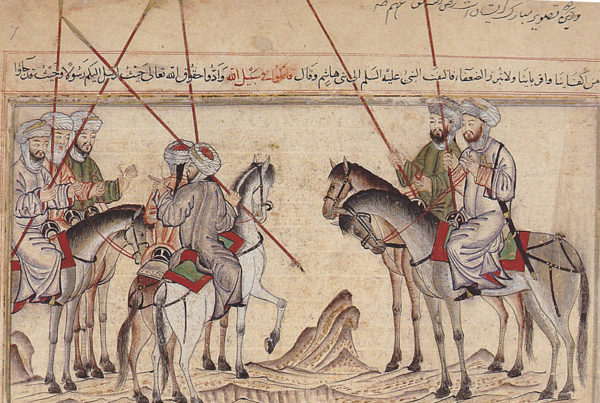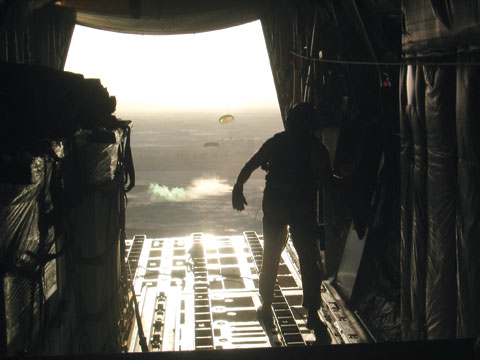The Canadian Forces are preparing to finish withdrawing from Afghanistan in mid-2014. Looking back over our decade-long military involvement, the longest in our history, Canadians are still evaluating the legacy of the war – and whether the gains were worth the cost in lives, effort, and tax dollars.
Author Graeme Smith is evidently still processing the experience as well. From 2006 to 2009, Smith served as correspondent for The Globe and Mail in Afghanistan, primarily working out of Kandahar in the south. In The Dogs are Eating Them Now: Our War in Afghanistan, Smith chronicles his experiences and changing perceptions of the conflict. As Canada and other NATO members flooded the south with troops and development projects, the deterioration of the security situation accelerated. The book, Smith’s first, won the 2013 Hilary Weston Writers’ Trust Prize for Nonfiction.
Smith describes his optimism and excitement upon first arriving in the country. He initially accepted the prevailing narrative that since 2001, Western forces had defeated the Taliban and were in the process of spreading international security beyond Kabul to the other regions. As Smith puts it, “Foreigners were helping, but they needed more troops.” Media reports at the time focused on challenges posed by warlords and militias, with the Taliban reduced to a non-player.
From there, the book chronicles Smith’s growing scepticism of the narrative being told by the military. In one visceral example, a military convoy loaded with journalists was on its way to a victory ceremony in southern Afghanistan when they were struck by a suicide attacker, killing four civilians in the process. Nevertheless, the NATO commander went ahead with the ceremony, claiming their mission “broke the back of [the Taliban] insurgency here.” This naive optimism persevered long after it was no longer warranted.
Smith contrasts the stories he heard from infantry and military commanders to others told by Afghan troops, civilians, and the Taliban. Were civilians in southern Afghanistan co-operating with the Taliban out of fear, longing for Western forces to arrive and secure the area? Or did the conflict break down along tribal lines, with the families allied with President Hamid Karzai and the NATO presence exploiting their power and exacting retribution on opponents in the south – who chose to ally with the Taliban for protection against their own? The book recounts Smith’s internal conflicts in trying to determine the truth – his optimism being challenged by conversations with locals and evidence of co-operation with the Taliban.
Smith makes clear that his goal is not clear-cut analysis, or a grand narrative. Unlike other monographs or histories that have been published on the war, The Dogs Are Eating Them Now tells a personal story. It does not explore the first five years of international involvement after 9/11, and only touches on domestic policy in relation to the political fallout from Smith’s 2008 articles on detainee transfers.
In one chapter, Smith discusses his award-winning series of interviews with Taliban members, in an attempt to more fully tell the story of the war in Afghanistan. Working with a local researcher and translators, Smith assembled interviews that depict the group as divided along tribal lines, driven by honour and revenge, closely tied to the drug trade, and fiercely nationalistic.
This understanding of the insurgency was not reflected in NATO’s military-centric, technocratic counter-terrorism approach. Troop surges and large-scale campaigns fuelled opposition, and instead of providing local safety from insurgents, it fed a fundamental sense of insecurity. Accumulated anger at Western airstrikes and Afghan corruption meant that, despite the Taliban giving entire villages advance warning before the massive jailbreak at Sarpoza Prison in 2008, no one tipped off the local police or military stations.
A conflicted relationship with international funding lies at the centre of the book. Smith disagrees with those who claim NATO’s problems in the south stemmed from insufficient money and troops, highlighting numerous examples of expensive development projects failing to win local hearts and minds. Looking past Western troop withdrawals in 2014, however, he also argues that maintaining stable international funding will be required if Afghan forces are to gain and maintain control. Money is a necessary but insufficient condition for security in the country, which can ultimately only be improved through commitment from various internal factions.
Smith begins his memoir by writing, “We lost the war in southern Afghanistan and it broke my heart.” He acknowledges the high-minded intentions of the intervention and some of the progress in education and civil infrastructure, but demonstrates concern that it will be too fragile to survive in the tense and insecure environment.
While not prescriptive, Smith’s account should be essential reading in future counter-insurgency and state-building endeavours as a reminder of how grand military strategy and national security-driven decisions can fail to capture or account for the impact of ground-level perceptions. Interventions cannot afford to ignore the opinions and feelings of those whose hearts and minds they are supposedly pursuing.








